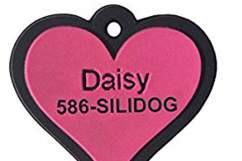PupBox a monthly subscription service for puppies, entered the Shark Tank in Season 8.
The packages are customized for your little canine and filled with toys, treats, accessories and training information for dogs and their parents. We interviewed husband-and-wife team Ben and Ariel Zvaifler, who founded the company in the spring of 2014.
Here’s what they told us about…
How the Idea Came About
Ben:
PupBox came about when we adopted our first child. Her name was Maggie and she was an 8-week-old Goldendoodle. Ariel and I were obsessed with our new puppy, and were instantly the most obsessive puppy parents you can imagine. We were constantly searching for the best training methods online, and asking family and friends for advice. The problem was we kept getting conflicting messages about the ‘right’ way to train and raise a puppy. We were also overwhelmed with the options in the big-box stores. Searching through endless aisles of dog products to try and find puppy specific items was frustrating, and half of the products we purchased she had no interest in. We thought that there had to be an easier way to facilitate the process of puppyhood.
How the Subscription Works
Ben: When someone visits our website they fill out a profile for their puppy. They let us know their pup’s age, gender, size, coat type, and any notes or specific requests that they may have. Based on the profile, we send out a box that caters to the puppy’s age and physical characteristics. Each box also includes a training guide that lets the puppy parent know what is going on with their puppy and what they should be doing to keep up. A new box is sent every month and the products and information change based on the rapidly changing needs of the puppy. To give you an example, our 4-month old box really keys in on teething. We offer several toys and chews that are perfect for a teething puppy. The training guide talks about how to handle the teething phase and also looks at socialization and some early commands to start working on.
Working With Your Spouse
Ben: Sometimes Ariel and I joke about the stigmas that are attached to husband and wife co-founding teams. We see it like this- we got married because we like spending time together and making decisions together, and we have a deep mutual respect for one another. I can’t say that the same thing is true for all co-founder relationships. Do we occasionally butt heads when the going gets tough? Yes, of course we do, but at the end of the day it is easier for us to compromise and move forward because we have been doing it for years in our personal relationship. It is widely reported that the majority of startups that fail do so because of some sort of co-founder dispute, so I think some of the negative connotation surrounding husband and wife teams is a bit overinflated. At the end of the day, starting a company is hard and stressful with constant emotional ups and downs, and I personally wouldn’t want to ride that rollercoaster with anyone but Ariel.
Pros to Running a Business in San Francisco
Ben: The startup ecosystem in the Bay Area is arguably the strongest in the entire world. We were lucky enough to be accepted into a top accelerator program, 500 Startups, which allowed us to really tap into all of the resources that Silicon Valley and San Francisco offer, like technology, talent, capital and knowledge. The biggest benefit for us was the knowledge base that exists. From previous startup founders to mentors and VCs, we have learned so much about how to start and scale a startup. There is no way we would have experienced as much personal or business growth without being in the Bay Area.
Moving the Company to San Diego
Ben: The cons however are extremely real. The cost of living, cost of salaries, and the general cost of doing business in San Francisco is prohibitively expensive. For this reason, we recently moved the company down to San Diego. We had to ask ourselves what kind of company we wanted to be. Did we want to be a startup that is forced to constantly raise money in order to post exponential growth and afford paying San Francisco salaries? Or did we want to retain majority ownership of our company, and put more focus on our product. We chose the latter. We are happy to be in San Diego as it takes a financial strain off the business, but we do miss the startup hustle of San Francisco.
How They Got on the ‘Tank’
Ariel: We were lucky, because we received an introduction to a Shark Tank producer who was looking for more companies to apply to Season 8. We traded a couple of emails and told him our story and some of our metrics. From there we were passed on to the video interview. We got Maggie involved in the video as much as possible which definitely helped us out.
Nerves in the ‘Tank’
Ariel: Yes I was nervous! are you kidding? It’s terrifying! Waiting for the first set of double doors to open, I almost had a heart attack. I remember holding Ben’s hand and trying to breathe. Once the doors open there was a camera crew in my face and it became real. Then the second set of doors open and there they are staring back at you. The Sharks all look like they do on TV; it didn’t seem real. I tried to remember to smile and focused in on the pitch. When we started the cameras all drifted out of sight and the Sharks were surprisingly easy to talk to. After a while I forgot I was on camera and the nerves eased away.
Other Tank products for dogs:
